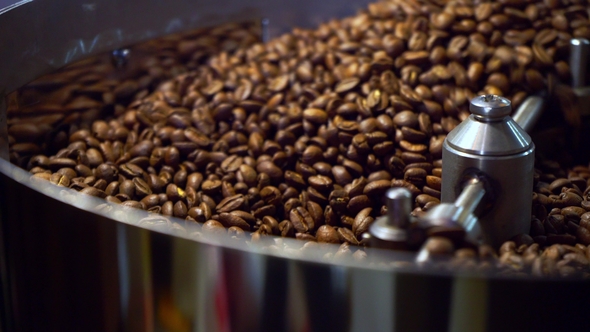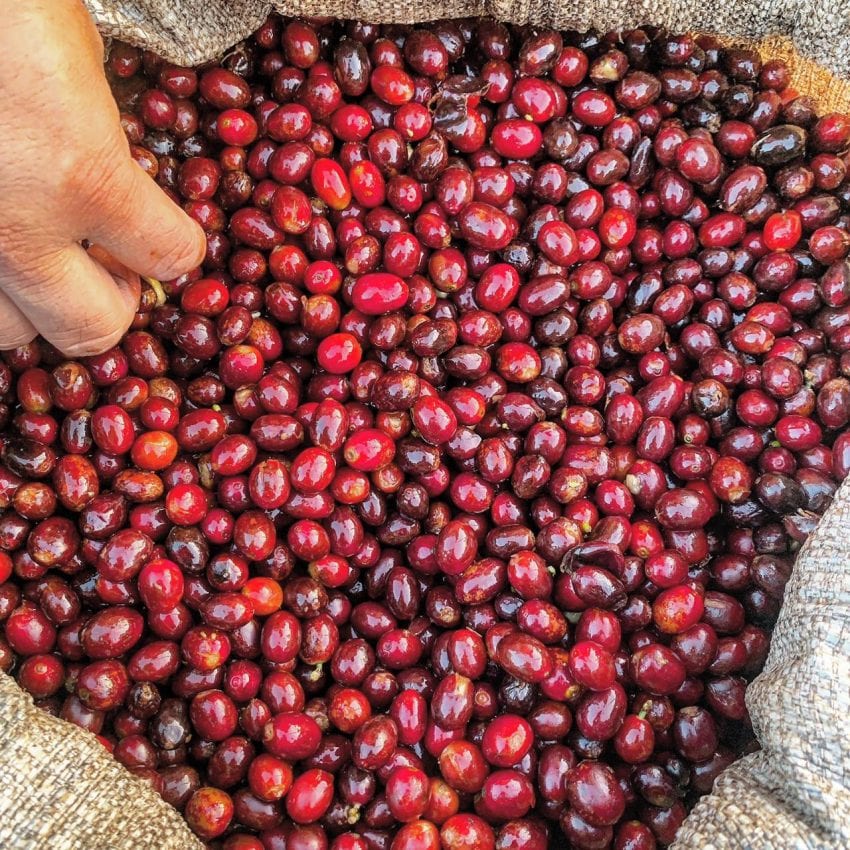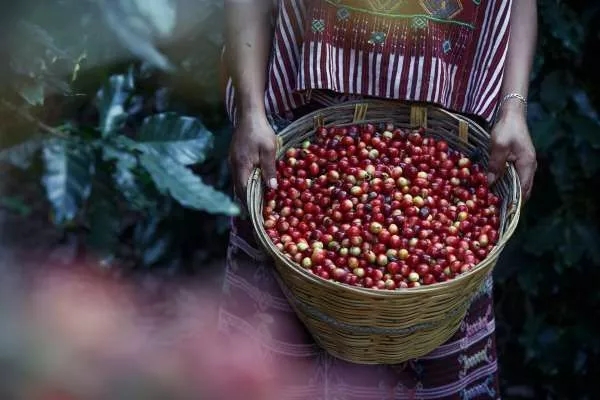Why do boutique coffee shops do their own baking? What are the advantages and disadvantages of home baking?

Professional coffee knowledge exchange more coffee bean information please follow the coffee workshop (Wechat official account cafe_style)
Home baking has to be said to be a "trend" in current boutique coffee shops. But why do you bake at home? What are the advantages of home baking? What are the shortcomings? Many people don't think so clearly.
Today, based on the experience of the player stage and the store stage, the editor has sorted out some of the most common ideas of coffee shops that want to operate in the "home baking" model.
Apart from the misunderstanding of cost considerations, what else do you think?
I want to make a "market division".
This is probably the easiest reason for wanting to be your own bakery. Of course, coffee shop owners are not necessarily so stylish, they usually say, "I want to bake coffee flavor that has its own characteristics and cannot be copied by others." Indeed, in the current environment, making a "market gap" is probably a lesson that every store has to do painstakingly. In the current coffee market, it is an inevitable trend that the sources of raw beans become transparent and fixed. Those famous raw bean merchants who can supply high-quality raw beans in China come and go. Under the premise of small capital, the mode of store operation that can be done is also limited. The most imaginable market division is probably baking.
Unfortunately, this is also the most misunderstood part: "I baked it myself, unlike other stores!"
Do you have to be different from others when you bake by yourself? The answer is yes, it must be different. From the type of bean baking machine, the preservation state of raw beans, differences in baking environment, unconscious operating habits. Will make each baker's baking flavor different, to be the same almost impossible. So you have to say that there is no problem with baking to make market differences.
The question is: do consumers pay for the differences?
It's not that your Yega Chuefei smells like oranges, mine smells like grapefruit and honey, and there's a "difference" between us. The so-called market difference had better be obvious to "I don't have to buy your product, I know you are different from others." Even if not, at least make sure that "anyone can realize that you are different from others after consumption." This can be called making a market division.
And market segmentation will not only be about 'flavor'. In fact, it will also include your customer base positioning, brand image, price range, operation pattern, etc., so in retrospect, you have to think about whether you are doing market segmentation. Or do you just want to play baked beans?
If you can get your favorite coffee beans within the cost and geographical scope of opening a store, there is no need for home baking at all!
Then again, under what circumstances is it reasonable to open your own bakery?
The answer is: "the beans needed to open a store are not available due to cost or geographical restrictions." Or: "aim to make the best and most perfect coffee in the world."
"the beans needed to open a store are not available due to cost or geographical restrictions."
Among the stores the editor has come into contact with, some of the store's favorite beans may come from abroad, and it is bound to lose money if they can only buy a small amount of goods at the beginning. Or there is a favorite store in China, but the store does not provide beans to other stores for use. Under this premise, the beans you need can only be baked by yourself as an expedient measure. Most of these stores belong to the type of "have to bake by themselves".
Under the consideration of supply cost or regional considerations, they can only try to reproduce the taste in their own baking way, but in fact, there are less than ten shops that can really achieve their original goal in the end. Most of them will be forced to sell some of their own exercises due to the consideration of economic reality, treating consumers as white rats and operating as Buddha nature. If the quality of the experiment meets the needs of consumers, you will survive. If consumers don't pay, you have to say good-bye.
To open this type of self-baking shop, in addition to being strong-willed, the most important thing is whether you have enough capital reserves to support your ideas before opening the store. And is your heart big enough and your wallet deep enough when you buy baking-related equipment?
"it is our duty to make the best and most perfect coffee in the world."
Maybe some people say, "where is the most perfect coffee in the world?" Yes, objectively speaking, definitely not.
Really take this as the goal, very few people open their own bakery. Examples that can be found by editors are Amber Cafe in Tokyo and Tim Wendelboe in Norway. This is the case in several coffee shops that are now famous in the world. The purpose of their own baking is quite clear, but in the minds of roasters in this type of bakery, there must be such a coffee appearance, so they spend a lot of time constantly trying to adjust and evolve their own products.
In the case of Amber Cafe, they want to provide "calm, soft, clean but long-term coffee flavor", insisting on "the perfect combination of bitterness and sweetness and more possibilities". So in Amber's shop, there are not only many creative drinks with coffee as the main body, but also many old beans with mature and soft flavor to choose from.
In the case of Tim Wendelboe, they pursue coffee as wine as possible, as soon as they drink it, immediately connect its taste with the origin, and strive to connect consumers with the most fundamental producers, so Tim Wendelboe's store does not have formula beans, but presents the most meticulous flavor of the place of origin with a single product of shallow roasting.
The preferences of these bakeries are quite clear, and they are prepared to devote their lives to these preferences. Think about it, what kind of coffee do you like and what kind of coffee do you want to make?
If only stay in: "I like sweet, thick", "like the fruit flavor", "like the original taste of coffee" … Well, your preference for your flavor is not clear enough, at least on the road to self-baking. It is not enough to just say what kind of "taste" you like. Is there a clear flavor imagination for the finished bean products? And how do you want these cooked beans to feel when they get into consumers' mouths? And how to present it perfectly?
You must have a clear belief in implementing your product, and if you have such a clear professional commitment, your own baking is naturally your only way out.
Conclusion
Of course, these two conditions do not conflict, usually if it is based on the second condition of the store, probably the first condition is absolutely sufficient. The advantage of our own bakery lies in the freedom of materials and the ability to fully implement our beliefs in our products.
When you ask yourself: what are your favorite bakeries and can they provide the beans you need when you open a shop? Can it help you provide enough choices when opening your own store? Can you meet your requirements for the product?
If your answer is "yes" and there is enough convenience in cost and delivery, you don't have to take on an extra layer of commodity quality control risk and huge capital investment in baked beans and equipment.
The advantage of your own baking is meaningless to your store. You might as well hand over the responsibility of quality control to bakers who think you can stably bake the flavor you like, and put the money saved on differences that make it easier for consumers to feel, such as personnel training, brand image, marketing development, and so on.
Photo Source: Internet
END
Important Notice :
前街咖啡 FrontStreet Coffee has moved to new addredd:
FrontStreet Coffee Address: 315,Donghua East Road,GuangZhou
Tel:020 38364473
- Prev

How to choose the right variety of coffee to grow? What factors should be considered in the selection of coffee varieties?
Professional coffee knowledge exchange more coffee bean information Please pay attention to the coffee workshop (Wechat official account cafe_style) to produce quality coffee, one of the most important factors is to choose the right coffee variety. Why do so many people invest in coffee breed breeding projects that require additional resources but are not necessarily reflected in the price in the end? The most important thing is how to make sure
- Next

A somewhat unpopular but super-practical coffee term in Chinese and English.
Professional coffee knowledge exchange more coffee bean information Please pay attention to coffee workshop (Wechat official account cafe_style) Coffee as a drink from abroad, if you want to know more about it, you will inevitably be exposed to a foreign language. At this time, it is particularly important to understand the technical terms related to coffee! The following is a more comprehensive term for coffee, horse.
Related
- Beginners will see the "Coffee pull flower" guide!
- What is the difference between ice blog purified milk and ordinary milk coffee?
- Why is the Philippines the largest producer of crops in Liberia?
- For coffee extraction, should the fine powder be retained?
- How does extracted espresso fill pressed powder? How much strength does it take to press the powder?
- How to make jasmine cold extract coffee? Is the jasmine + latte good?
- Will this little toy really make the coffee taste better? How does Lily Drip affect coffee extraction?
- Will the action of slapping the filter cup also affect coffee extraction?
- What's the difference between powder-to-water ratio and powder-to-liquid ratio?
- What is the Ethiopian local species? What does it have to do with Heirloom native species?

